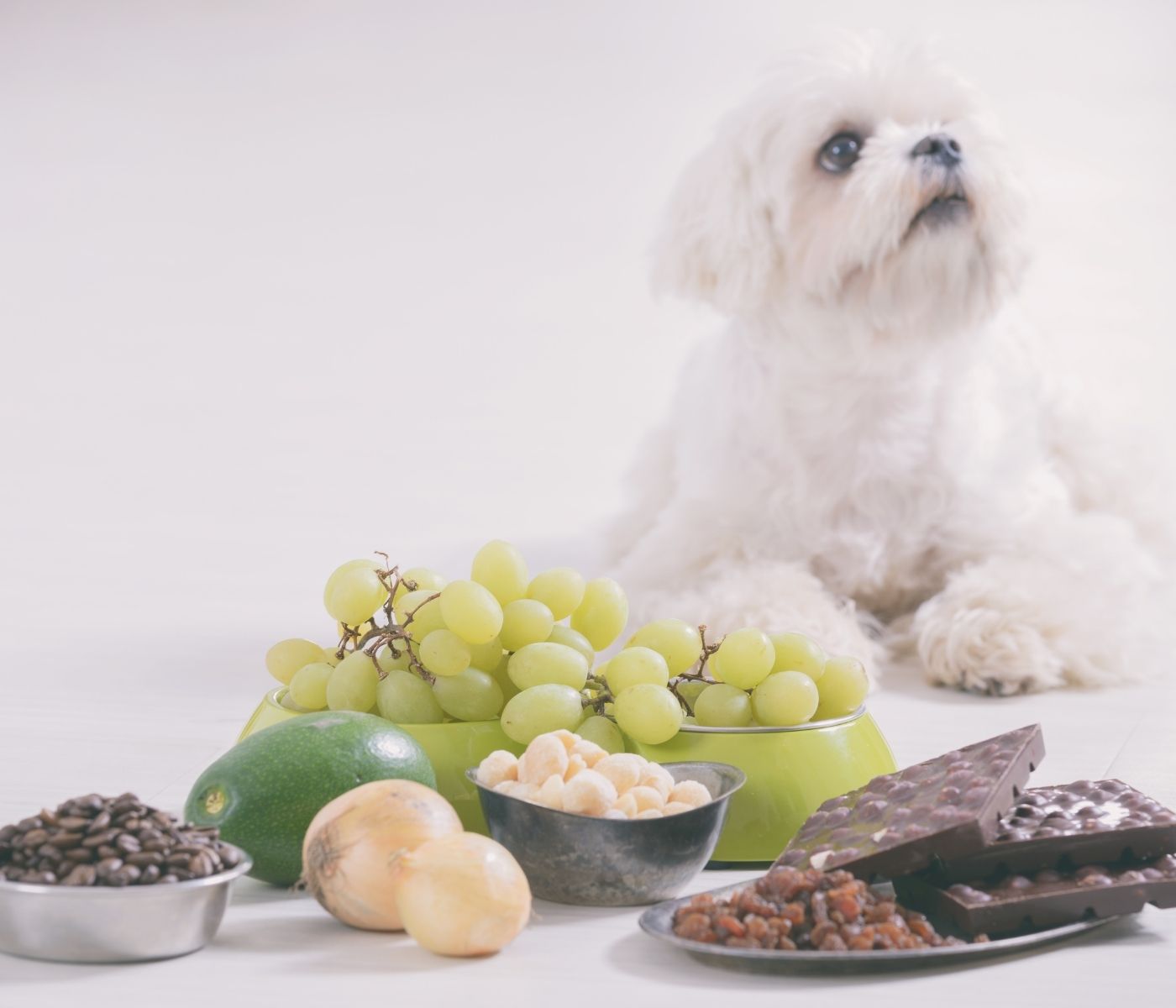Caring for our beloved furry pals involves being mindful of what they eat. Like us, dogs can’t safely consume certain foods that might seem harmless to humans.
Some everyday items in our kitchens can be toxic to them. From grapes and raisins to chocolate and onions, quite a few foods can make our four-legged friends sick.
Knowing about these dangers is essential for keeping our dogs healthy and happy. Let’s look at ten foods we should avoid to protect our furry companions.
10 Foods That Are Toxic to Dogs and Should Be Avoided
As responsible pet owners, we must ensure the safety and well-being of our furry companions. One crucial aspect is being aware of the foods harmful to dogs.
While some human foods may seem harmless, they can be toxic to our canine friends. This comprehensive guide will delve into ten common foods that should be avoided to keep our dogs healthy and happy.
1. Grapes and Raisins:
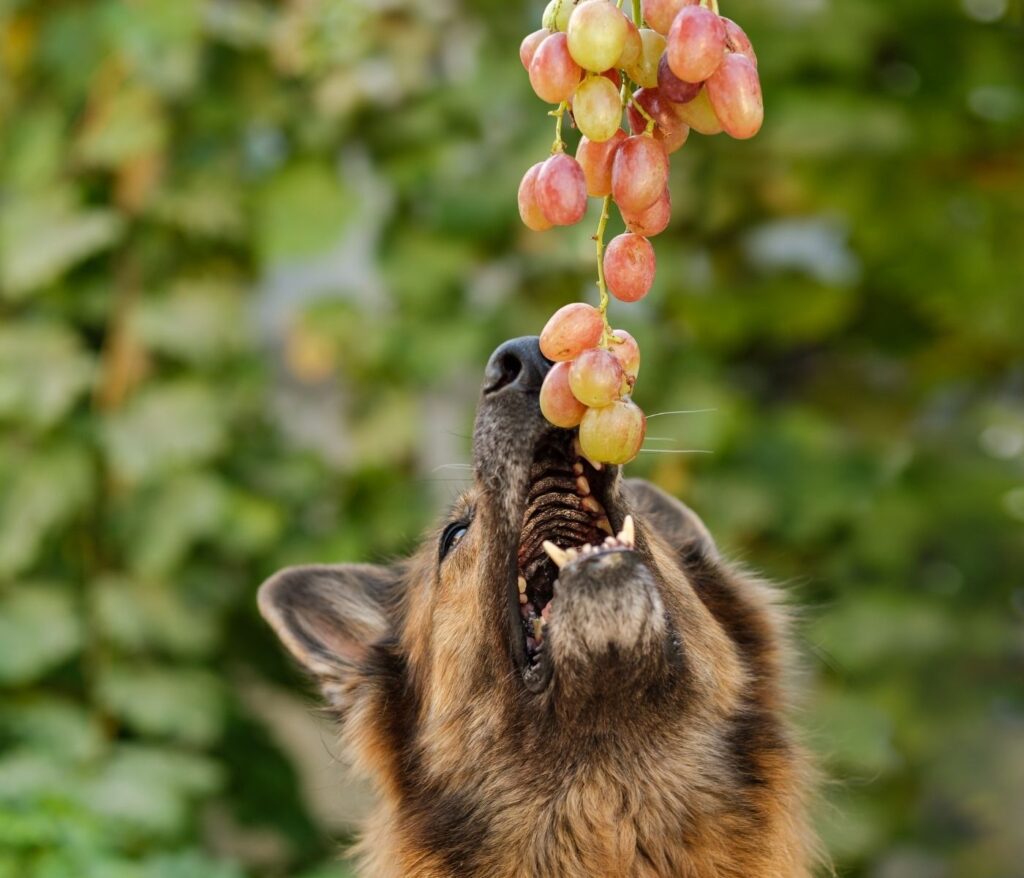
Grapes and raisins are highly toxic to dogs and can cause severe kidney damage, leading to kidney failure. Even small amounts can be harmful, so it’s best to keep these fruits out of your furry friend’s reach.
2. Chocolate:

Chocolate contains theobromine and caffeine, which are toxic to dogs. Ingesting chocolate can lead to symptoms such as vomiting, diarrhea, rapid breathing, and even seizures. The darker the chocolate, the higher the concentration of these harmful compounds.
3. Onions and Garlic:
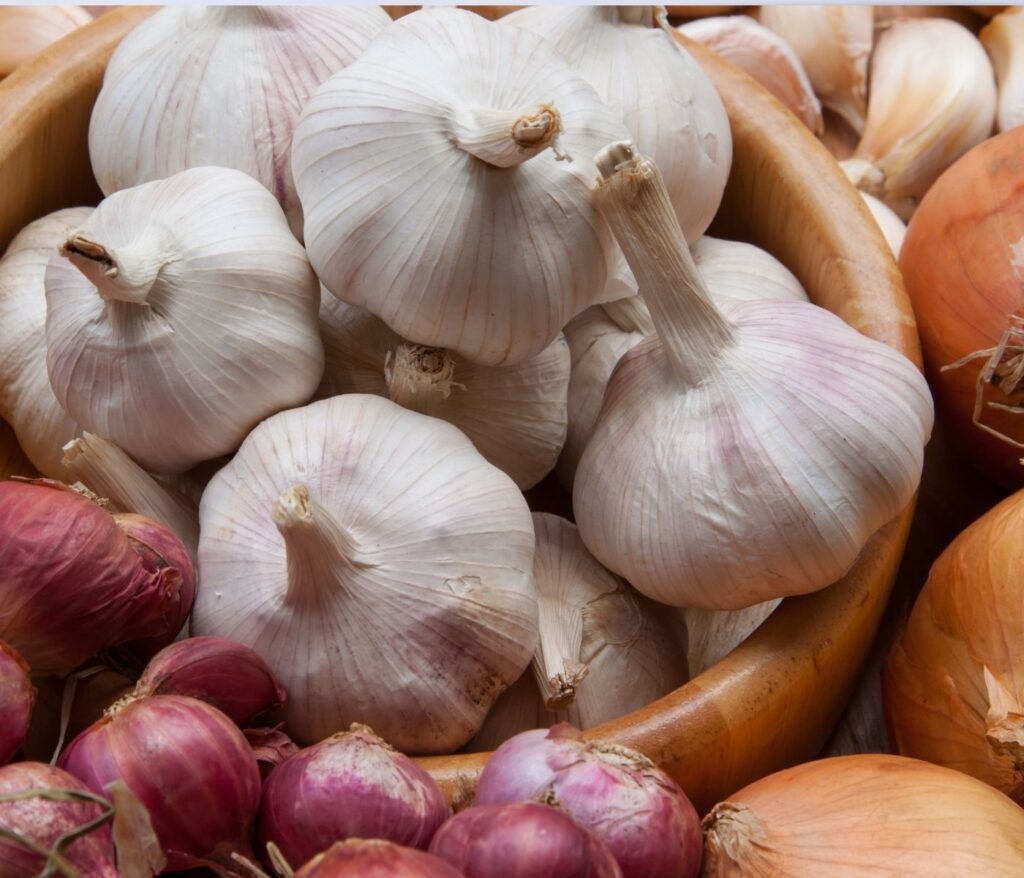
Onions and garlic, whether raw, cooked, or powdered, can damage a dog’s red blood cells, leading to anemia. Symptoms may include weakness, lethargy, vomiting, and difficulty breathing. It’s crucial to avoid feeding your dog any foods containing onions or garlic.
4. Xylitol:

Xylitol is a sugar substitute commonly found in sugar-free gum, candies, and peanut butter brands. In dogs, xylitol ingestion can cause a rapid release of insulin, leading to hypoglycemia (low blood sugar), seizures, and liver failure. Always check product labels for xylitol before sharing snacks with your dog.
5. Avocado:
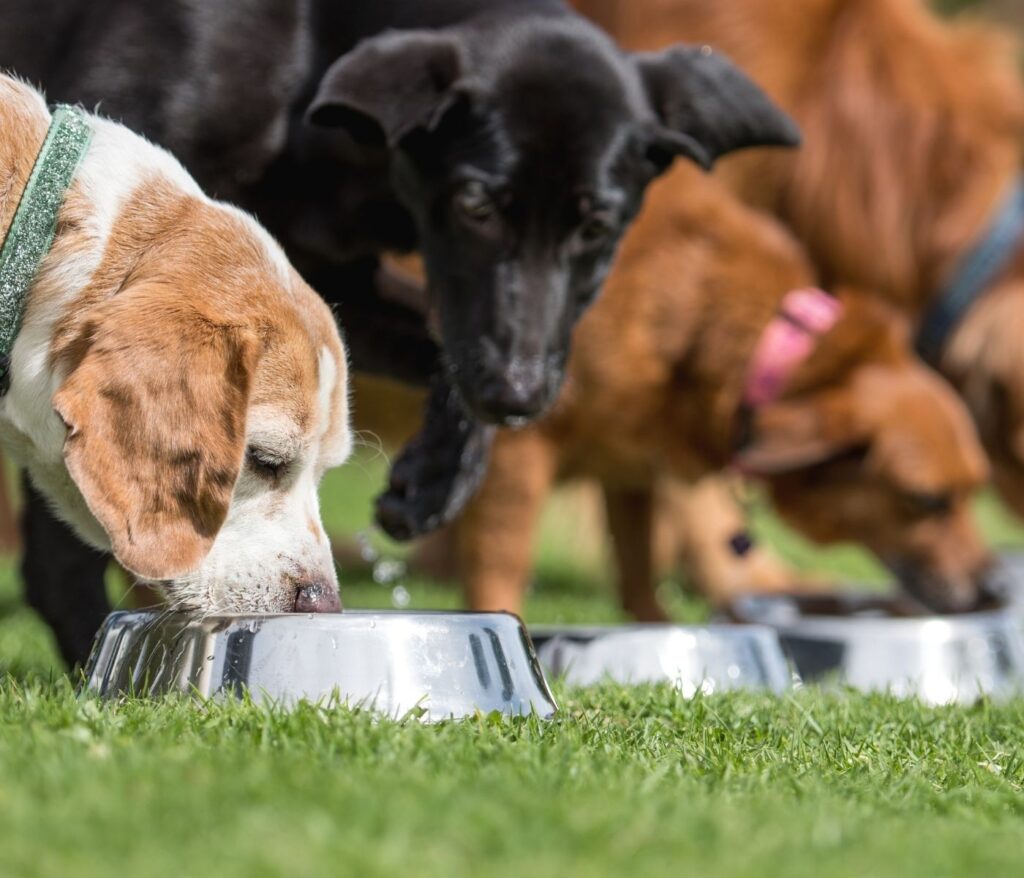
Avocado contains a substance called persin, which is toxic to dogs in large amounts. While the flesh of ripe avocado is generally safe in small quantities, the pit, skin, and leaves contain higher concentrations of persin and should be kept away from dogs.
6. Alcohol:

Alcohol consumption can have severe consequences for dogs, including intoxication, vomiting, diarrhea, difficulty breathing, tremors, and even coma or death.
Never leave alcoholic beverages within reach of your dog, and be cautious when using products containing alcohol, such as mouthwash and certain medications.
7. Macadamia Nuts:
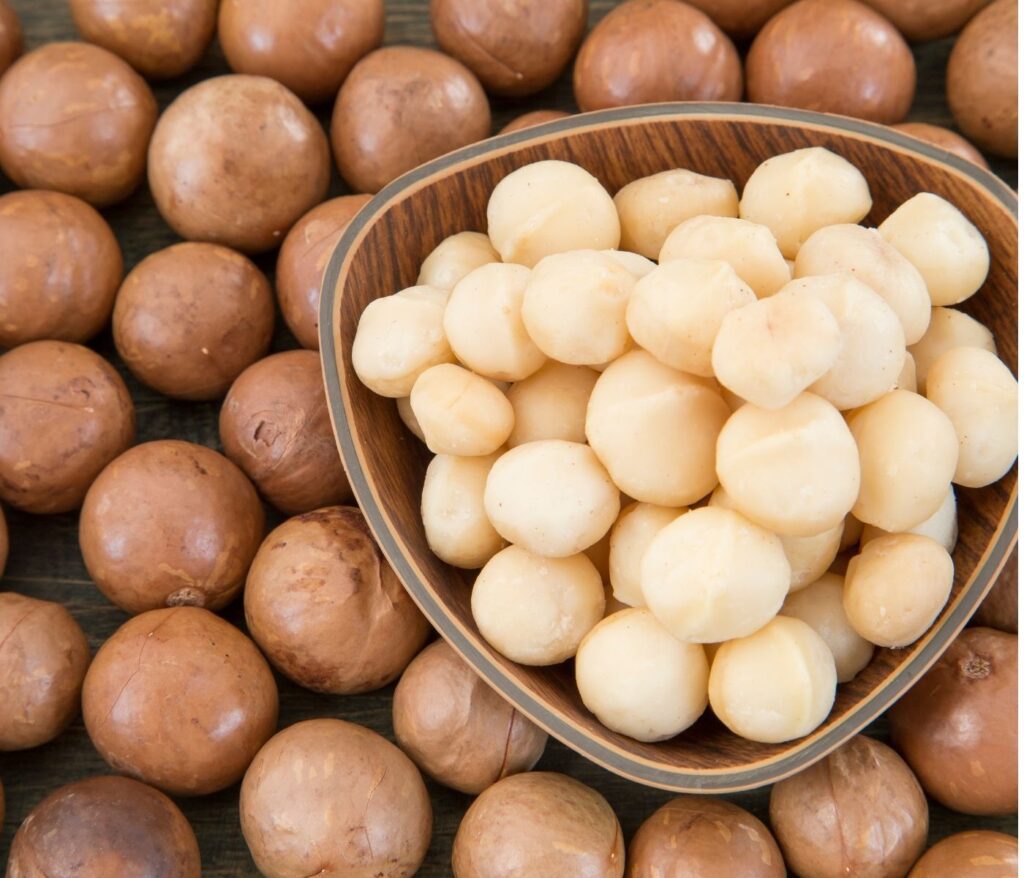
Macadamia nuts are toxic to dogs and can cause symptoms such as weakness, tremors, vomiting, and hyperthermia (elevated body temperature). It’s essential to keep foods containing macadamia nuts, such as cookies and candies, away from your dog.
8. Dairy Products:
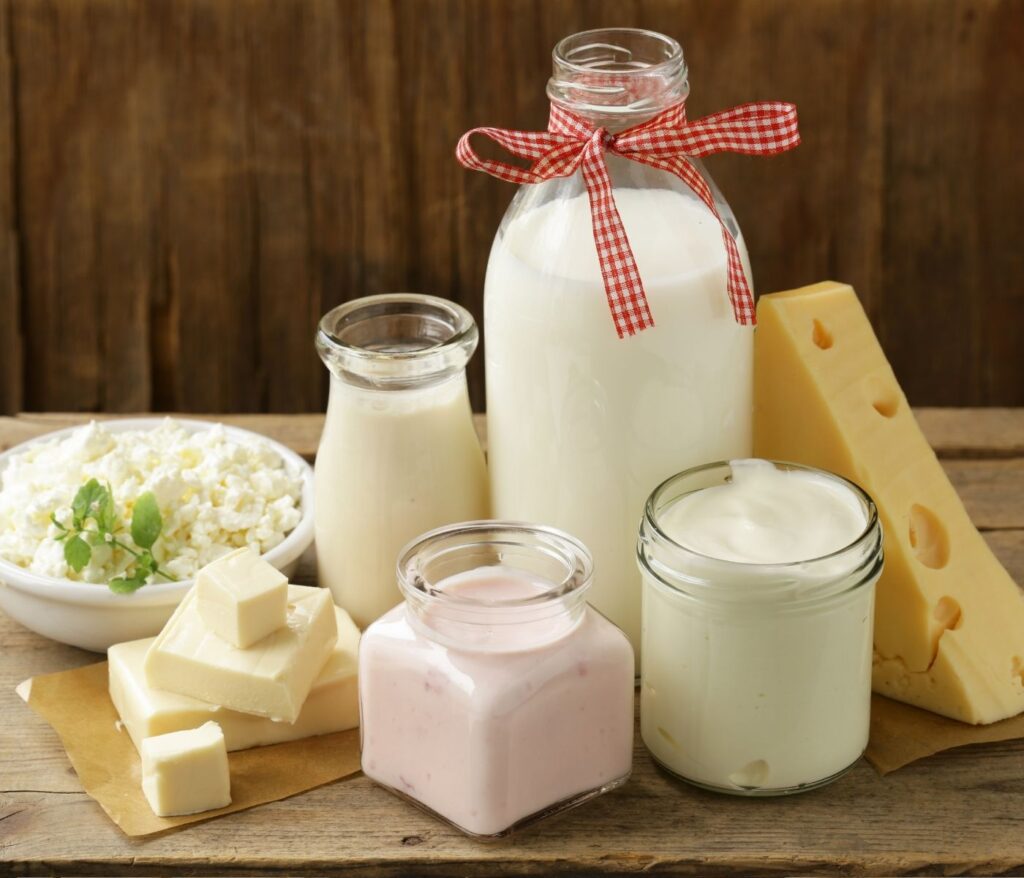
While some dogs may tolerate small amounts of plain, unsweetened dairy products, many are lactose intolerant and can experience digestive upset, including diarrhea and gas. It’s best to avoid feeding dairy products to dogs altogether.
9. Raw Meat and Bones:
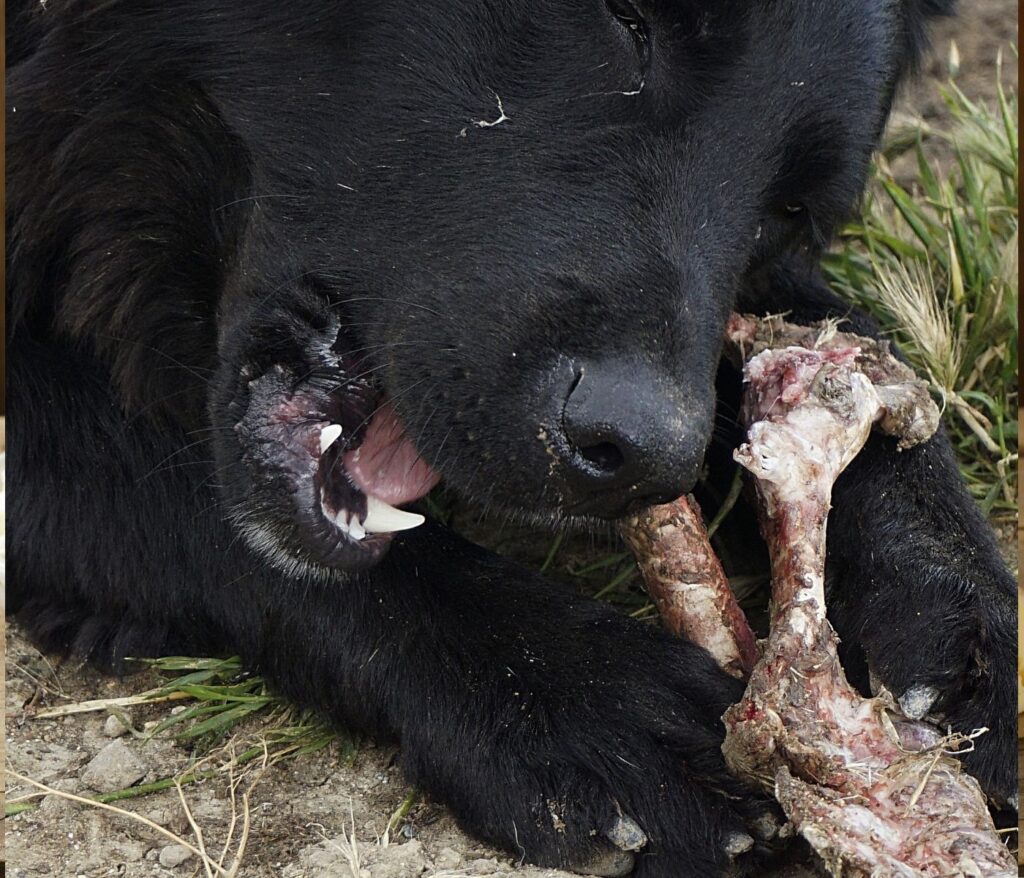
Feeding dogs raw meat and bones can pose several risks, including bacterial contamination (e.g., Salmonella, E. coli), choking hazards, and gastrointestinal obstruction or perforation. Always cook meat thoroughly and provide safe alternatives to bones for chewing.
10. Salt:
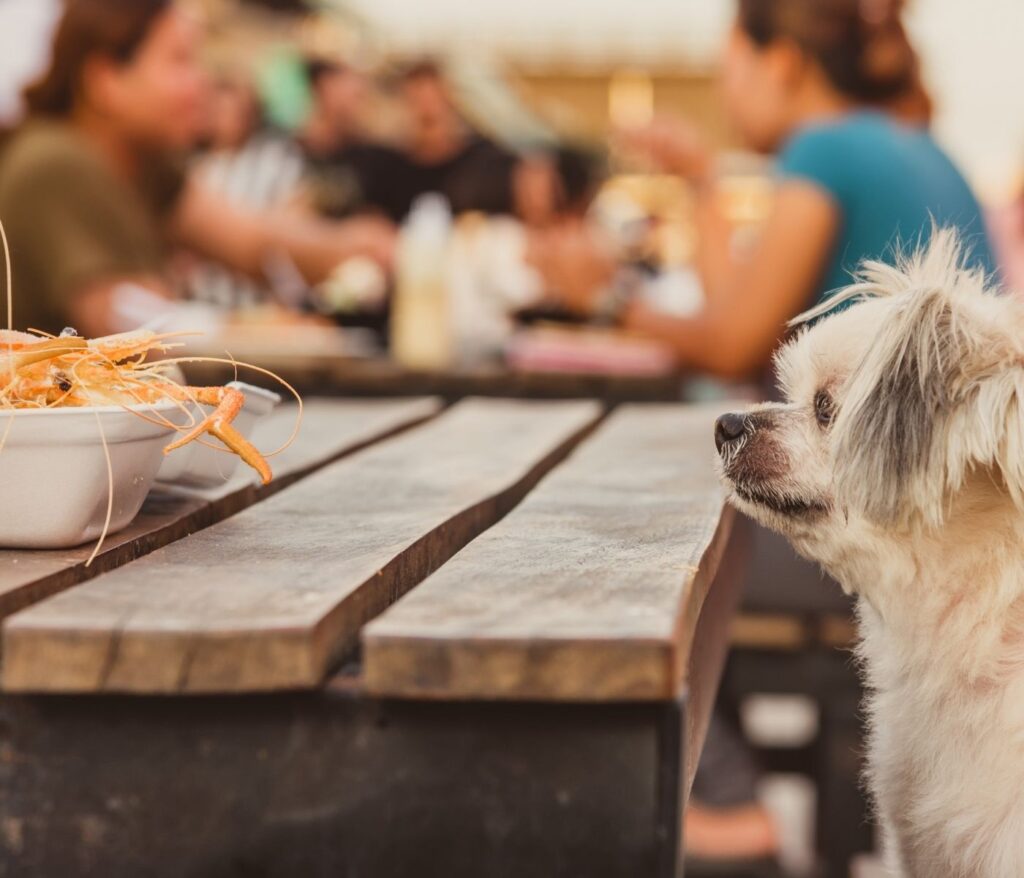
Excessive salt consumption can lead to sodium ion poisoning in dogs, causing symptoms such as vomiting, diarrhea, excessive thirst or urination, tremors, seizures, and even death in severe cases.
Avoid feeding your dog salty snacks like chips and pretzels, and be cautious with high-sodium foods.
What are Foods that are Good for Dogs?
Like humans, dogs benefit from a balanced diet rich in nutrients to support their overall health and well-being.
While knowing which foods to avoid is essential, it’s equally important to understand which foods benefit our furry friends.
In this comprehensive guide, we’ll explore ten healthy foods that can be incorporated into your dog’s diet to promote optimal health and vitality.
1. Lean Protein Sources:
Lean protein is essential for dogs’ muscle development, repair, and overall health. Opt for high-quality protein sources such as cooked chicken, turkey, lean beef, or fish. These protein sources provide essential amino acids that support your dog’s energy levels and immune function.
2. Cooked Eggs:
Eggs are a nutritious and affordable source of protein for dogs. They also contain essential vitamins and minerals like vitamin D, B12, and selenium. Serve cooked eggs to your dog as a tasty and wholesome addition to their diet, but avoid feeding raw eggs to prevent the risk of salmonella contamination.
3. Fruits (in moderation):
Certain fruits can provide valuable nutrients and antioxidants for dogs. Offer small amounts of dog-safe fruits like apples (without seeds), blueberries, strawberries, and bananas as occasional treats. These fruits are delicious and contain vitamins, fiber, and natural sugars that support your dog’s overall health.
4. Vegetables (cooked or pureed):
Vegetables are an excellent source of vitamins, minerals, and fiber for dogs. Steam or puree dog-friendly vegetables such as carrots, green beans, peas, and sweet potatoes to enhance digestibility.
These veggies can be added to your dog’s meals or used as healthy treats for added nutritional benefits.
5. Plain Greek Yogurt:
Plain Greek yogurt is a probiotic-rich food that can support your dog’s digestive health. It contains beneficial bacteria that promote a healthy gut microbiome and may help alleviate digestive issues such as diarrhea.
Offer small amounts of plain Greek yogurt as an occasional treat, or mix it with your dog’s food for added flavor and nutrition.
6. Pumpkin:
Pumpkin is a nutritious and fibrous food that can benefit your dog’s digestive system. It’s rich in fiber and low in calories, making it an excellent choice for dogs with gastrointestinal issues or weight management concerns.
Serve cooked or canned pumpkin (without added sugars or spices) to help regulate your dog’s bowel movements and promote overall digestive health.
7. Oats:
Oats are a wholesome and gluten-free grain that provides dogs with essential nutrients like fiber, protein, and vitamins. Cooked oats can be a nutritious addition to your dog’s meals, offering sustained energy and supporting digestive health.
Avoid feeding flavored or sugary oatmeal to your dog, and opt for plain, cooked oats instead.
8. Coconut Oil:
Coconut oil is a natural source of healthy fats that can benefit your dog’s skin, coat, and overall health. It contains medium-chain triglycerides (MCTs) with antibacterial, antiviral, and anti-inflammatory properties.
Incorporate small amounts of coconut oil into your dog’s diet to promote a shiny coat, improve skin health, and boost their immune system.
9. Peanut Butter (without xylitol):
Peanut butter is a favorite treat for many dogs, but it’s essential to choose varieties that are free of xylitol, a toxic sweetener.
Look for natural peanut butter without added sugars or salt, and offer it to your dog in moderation as a tasty and nutritious snack.
Peanut butter is a good source of protein, healthy fats, and vitamins for your furry friend.
10. Cooked Brown Rice:
Cooked brown rice is a nutritious and easily digestible carbohydrate source for dogs. It provides energy, fiber, and essential nutrients like manganese and selenium.
Mix cooked brown rice with lean protein and vegetables to create a balanced and satisfying meal for your dog, supporting their overall health and well-being.
FAQS
Q: What three meats should dogs avoid?
A: Three types of meat that dogs should avoid are:
- Raw pork can contain parasites such as trichinella spiralis, which can cause trichinosis in dogs. Cooking pork thoroughly eliminates this risk, but feeding it raw can lead to severe illness.
- Processed Meats: Processed meats like bacon, sausage, and deli meats often contain high levels of salt, preservatives, and other additives unsuitable for dogs. Excessive consumption of these meats can lead to digestive issues and other health problems.
- Fatty Meats: While dogs need some fat in their diet, excessively fatty meats like lamb, beef trimmings, and specific cuts of pork can cause pancreatitis, a painful inflammation of the pancreas. It’s best to opt for leaner cuts of meat to avoid this risk.
Q: Can dogs eat bread?
A: Yes, dogs can eat bread in moderation. Plain, unsalted bread that is fully cooked and free of potentially harmful ingredients like raisins, garlic, or xylitol is generally safe for dogs. However, bread should only be given to dogs as an occasional treat, not as a primary diet component.
Q: Are onions bad for dogs?
A: Yes, onions are toxic to dogs and should be avoided altogether. They contain compounds that can damage red blood cells, leading to symptoms like weakness, vomiting, and even anemia.
Even small amounts can be harmful, so keeping all onion-containing foods away from your dog is essential. If ingestion occurs, seek veterinary help immediately.
Conclusion
In conclusion, being aware of the foods toxic to dogs is essential for keeping our furry friends safe and healthy.
Several common foods can pose serious health risks to our canine companions, from grapes and raisins to chocolate and onions.
By understanding these hazards and taking proactive measures to avoid them, we can ensure that our dogs live long, happy lives by our side.
Responsible pet ownership includes being mindful of what our dogs eat and keeping harmful foods out of their reach.
If you suspect your dog has ingested a toxic substance, contact your veterinarian immediately for guidance and treatment.
